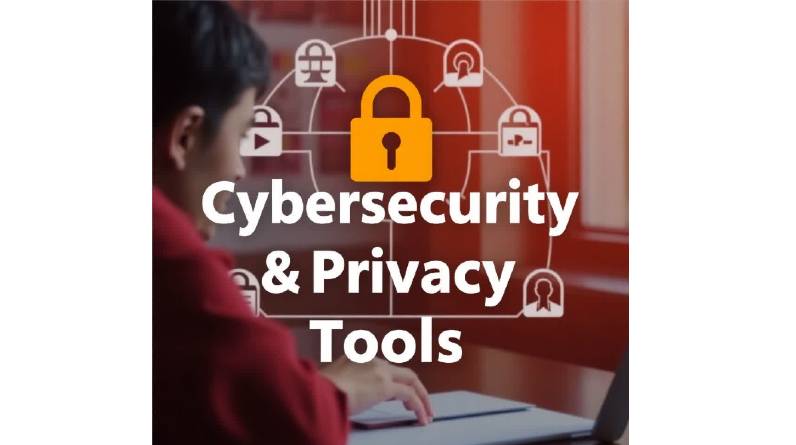
In an era where our personal and professional lives are intertwined with the internet, the need for robust cybersecurity and privacy tools has never been more critical. From password managers to VPNs, these digital safeguards form a frontline defense against data breaches, identity theft, and surveillance capitalism.
But beyond the basics, this article explores a fresh perspective—how these tools not only protect but enhance usability, trust, and digital independence.
Why Cybersecurity Tools Are No Longer Optional
According to IBM’s 2024 Cost of a Data Breach Report, the average data breach cost has reached $4.45 million, marking a 15% increase over three years. Individuals are not spared either. With phishing, credential stuffing, and spyware becoming more sophisticated, relying on manual or browser-based protections is simply outdated.
Cybersecurity and privacy tools are now a necessity, not a luxury.
Password Managers: Reclaiming Control Over Your Digital Identity
What Is a Password Manager?
A password manager securely stores and manages your passwords, personal notes, credit card data, and login credentials in a vault. It encrypts data locally or in the cloud and only allows access through a master password or biometric authentication.
Key Features to Look For
| Feature | Why It Matters |
| Zero-Knowledge Architecture | Ensures even the service provider cannot see your data |
| Advanced Encryption (AES-256 or XChaCha20) | Protects against brute-force attacks |
| Password Generator | Creates strong, unique passwords effortlessly |
| Autofill & Cross-Platform Sync | Enhances usability across devices and browsers |
| Password Health Monitoring | Flags weak, reused, or compromised credentials |
Password Managers Do More Than Store
Most users think password managers are just vaults—but they’re also security auditors, privacy enhancers, and digital assistants. Tools like NordPass and 1Password now offer:
- Data breach monitoring
- Dark web alerts
- Secure password sharing
- Hide-my-email aliases
Example: If your Netflix login is leaked in a breach, your password manager will notify you and suggest a new one instantly.
VPNs: The Gateway to Private Browsing
What Is a VPN?
A Virtual Private Network (VPN) encrypts your internet traffic and masks your IP address, making your online actions virtually untraceable. It is vital for:
- Avoiding ISP tracking
- Preventing data harvesting by third-party advertisers
- Accessing content restricted by geography (e.g., streaming services)
Common Use Cases
- Remote Work Protection
Encrypt sensitive business data while accessing company servers from public Wi-Fi. - Bypass Geo-blocks
Access websites, news, or content unavailable in your region. - Prevent Price Discrimination
Shop for flights or hotels from different virtual locations to get better deals.
Key VPN Features to Consider
| Feature | Benefit |
| AES-256 Encryption | Military-grade security |
| No-Logs Policy | Your activity isn’t stored |
| Kill Switch | Cuts internet if VPN drops, preventing IP leakage |
| Split Tunneling | Choose which apps use the VPN |
| MultiHop Servers | Route your traffic through two servers for extra privacy |
Example: Using Proton VPN, users can enable MultiHop routing and pair it with Proton Mail and Proton Pass for an all-rounded, encrypted digital environment.
Choosing Tools That Work Together: Ecosystem Thinking
Rather than piecemeal solutions, modern cybersecurity emphasizes ecosystem compatibility. For instance, Proton offers:
- Proton VPN
- Proton Pass (password manager)
- Proton Mail
- Proton Drive
This tight integration enables seamless encrypted workflows—emailing, browsing, and logging in—without sacrificing usability.
Fresh Insight: Look for suite-based tools built around privacy-first ecosystems. This not only ensures interoperability but strengthens security by design.
Local vs. Cloud-Based Tools: Which Is Safer?
| Storage Type | Advantages | Disadvantages |
| Local | Full control, offline access | Susceptible to device theft, malware |
| Cloud-Based | Remote access, backups, cross-platform | Risk of server-side breach, internet required |
Hybrid solutions, like Bitwarden, allow you to self-host your password vault while offering cloud-like features—a rising trend in enterprise and advanced consumer circles.
Common Cybersecurity Mistakes to Avoid
- Reusing Passwords Across Accounts
- Storing Passwords in Browsers or Plaintext Files
- Ignoring 2FA (Two-Factor Authentication)
- Using Free VPNs That Log Data
- Delaying Updates on Security Tools
What Makes a Tool Truly Private? Transparency & Open Source
One aspect often overlooked is code transparency. Privacy-centric companies like Proton and Bitwarden open-source their code and submit to independent audits. This ensures:
- No hidden backdoors
- Full public vetting of security claims
- Trust built through openness, not marketing
Stat: Over 70% of security professionals trust open-source tools more than proprietary ones due to transparency (Cybersecurity Insiders, 2024).
Recommendations for Different User Profiles
| User Type | Recommended Tools | Why |
| Individual Privacy Advocate | Proton Pass, Proton VPN | End-to-end encrypted ecosystem |
| Budget-Conscious User | RoboForm, Surfshark VPN | Reliable security at low cost |
| Business/Team Users | Keeper, 1Password Teams | Admin dashboards, access control |
| Families | Dashlane Family, NordPass Family | Easy sharing, multiple accounts |
Final Thoughts: Security Is Usability
The future of cybersecurity lies not just in encryption, but in usability that encourages better habits. Password managers and VPNs are no longer just defensive tools—they’re digital enablers that help people take back control of their identities, data, and online presence.
Don’t just secure your digital life. Enhance it.
Choose tools that align with your privacy values and daily workflow needs.






